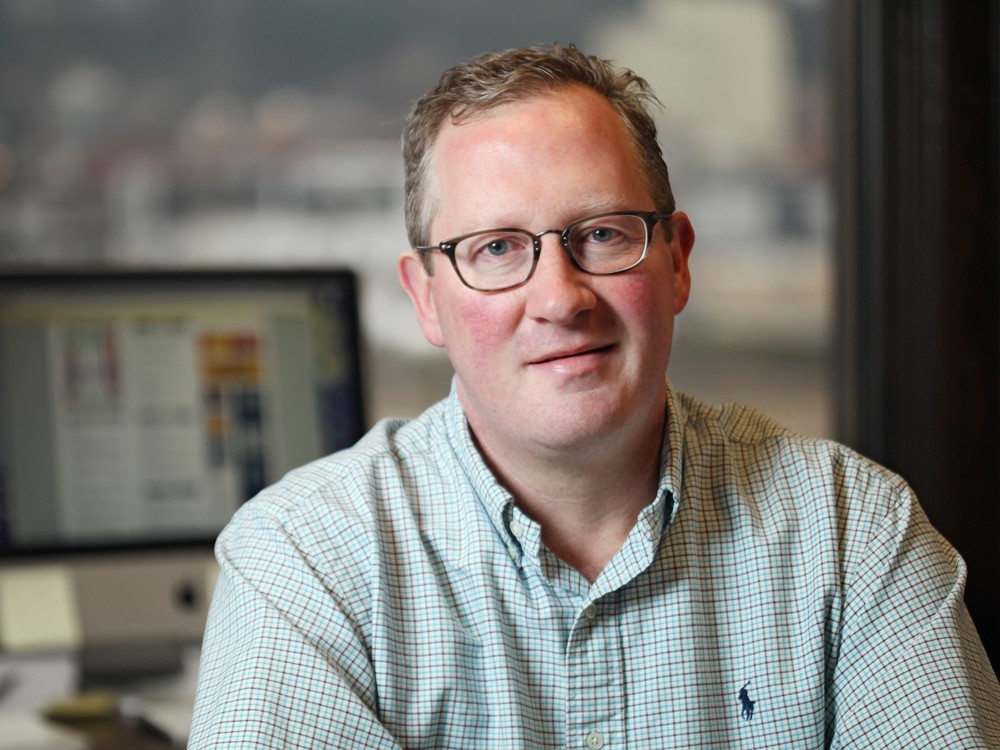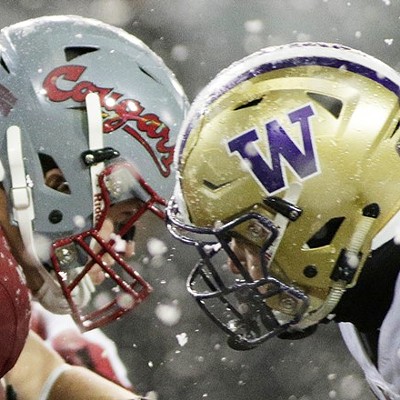I remember in 7th grade they showed us a map of Spokane, with a red zone emanating from Fairchild Air Force Base. If, our teacher told us, Russia drops an atom bomb on Fairchild, this would be the blast zone. It wasn’t hard to find my house, just on the edge of the red zone. Scary.
My mom remembers how they drilled for an attack in the 1950s by hiding under their desks. A generation before that, my grandfather Archie served in the Pacific Theater of World War II. Like most of his generation, he never talked about it, but his fear of war would have been very real.
There have been social fears forever — from the time of the saber-tooth tiger to the black plague to today. It’s how we cope that changes.
It’s telling that one of Hollywood’s great eras was during World War II. It was a distinctly escapist cinema — 1942 brought America Holiday Inn, while Meet Me in St. Louis was a big hit in 1944. Maybe a 90-minute reminder of all that is good about humanity was a healthy way to face a world that was falling apart. Movies helped Americans recharge for the war effort.
Today, if pop culture is any indication, we have a strange relationship with our fears. If it’s not based on a comic book, it seems every story has to be set in a post-apocalyptic near-future, with zombies as the villains of choice. We apparently enjoy watching the world be destroyed while safely shoveling popcorn into our mouths.
If art reflects who we are, what do the children killing children of The Hunger Games say about us? Or the swarming zombies of World War Z? As David Denby puts it in his New Yorker review of World War Z, “Why do we long for what terrifies us, doctor?”
It’s Psychology 101 to say that we’re sublimating our actual fears with such fantasies. The real fears are on the news every night — superstorms, super tornadoes, super heatwaves — but rather than depict those cataclysms, we obsess about a zombie apocalypse. We’re neither grappling with our reality nor taking a break from it. We’ve created a more complete detachment.
What’s the impact of having zombie apocalypse on the brain? According to a new survey in Time magazine’s “Pursuit of Happiness” cover story, the percentage of Americans who describe themselves as optimists has dropped to 50 percent; in 2004, that figure was 79 percent. And it’s not surprising that the so-called “survivalist” movement is flourishing, with TV shows devoted to Doomsday Preppers and emergency food kits available at Costco.
Instead of being victimized and turned feeble by some imagined dark future, we’re stronger as a society when we feel empowered to take on our challenges — like defeating fascism, ending the threat of nuclear annihilation or grappling with global warming.





















